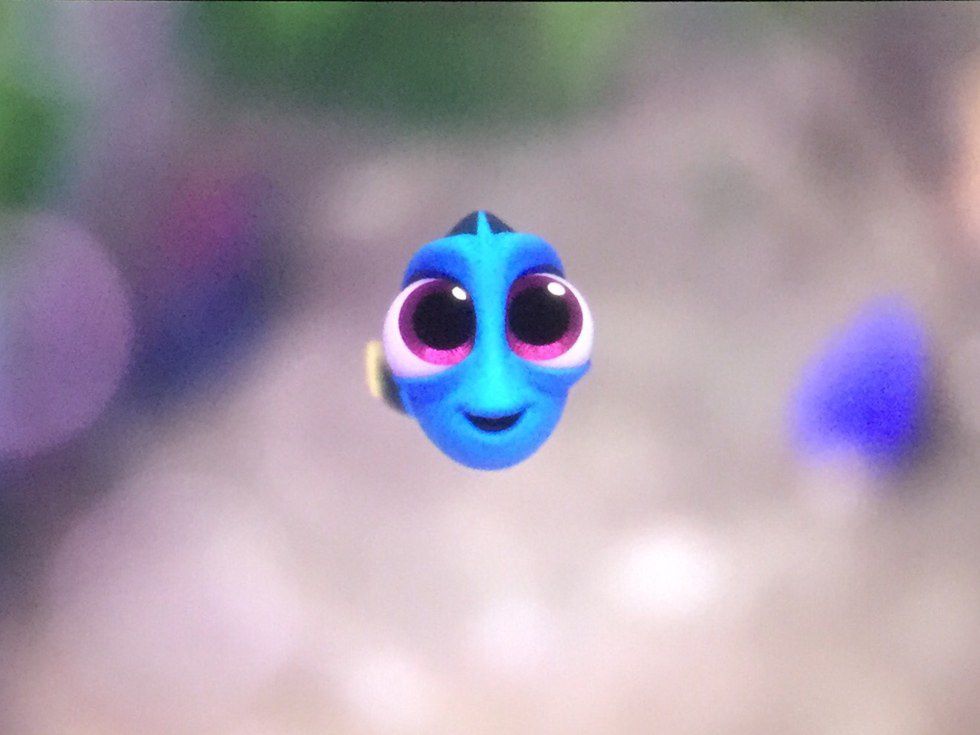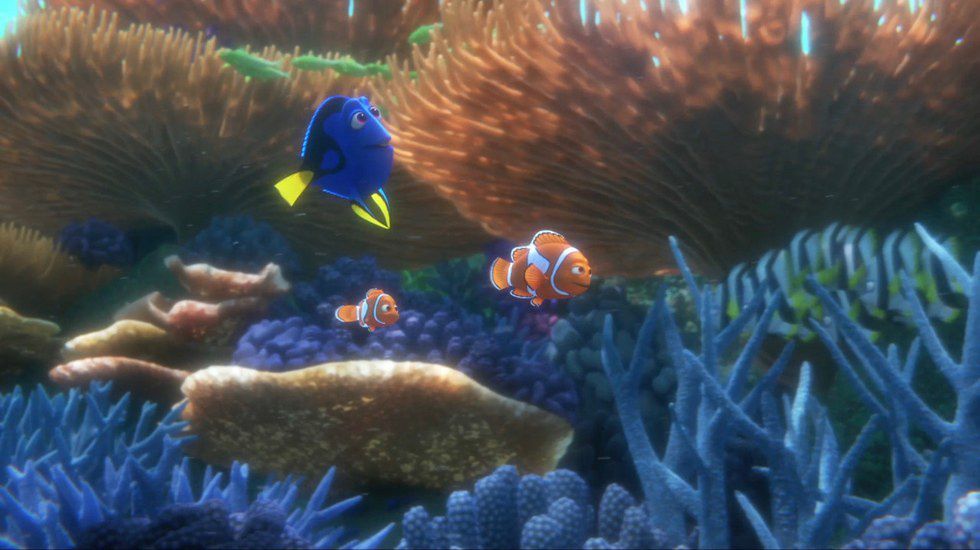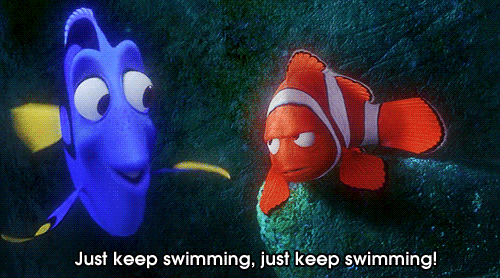This past Thursday, "Finding Dory" crashed into the shores of the the box-office, grossing $9.2 million in its first night. As the sequel to "Finding Nemo", "Finding Dory" is attracting a combined audience of both young children and current college students who were children when "Finding Nemo" came out a whopping thirteen years ago. Fully aware of the unique audience, the storytellers at Pixar have crafted a tale fit for viewers of all ages. For the children, "Finding Dory" continues on the themes in "Finding Nemo" of adventure, friendship, and the importance of underseas conservation.
For the young adult crowd, "Finding Dory" challenges the tough issue of having a mental condition or being friends or family with someone who has a mental condition. While Dory's condition of short-term memory loss (as Dory repeats humorously throughout the film) is a somewhat uncommon one, the ways in which the film demonstrates the difficulties in Dory's life because of it is a story that is hugely and unfortunately relevant to people with depression, anxiety, and other mental conditions.
"Finding Dory" shows us the right way for parents to love children with mental illness.
The movie opens on an adorable baby Dory when still under the care of her parents. While cheek-pinchingly cute (just look at those eyes!) it's evident from the get-go that Dory's short-term memory loss as a child left her unable to socialize with others and often a danger to herself. She is unable to understand the concept of playing pretend even with her parents and she forgets important facts her parents tell her about things to stay away from.
However, it is evident that Dory's parents not only love her unconditionally but are also incredibly patient with her condition. Dory's parents are kind to repeat anything she has forgotten and they constantly reassure her that she hasn't done anything wrong in forgetting. They understand that Dory is trying her hardest and that she can't control her forgetfulness.
To someone with mental illness, this scene is tear-jerking. While many people are blessed with parents who are accepting and understanding of mental conditions, many people must struggle to explain their conditions to their parents. People with depression are often blamed by their parents for being too "lazy" to excel in work or academics, when in reality depression causes true physical fatigue. People with anxiety are often blamed for their inability to make friends--"You just need to put yourself out there!"--when in reality the thought of approaching new people can cause debilitating panic attacks. The image "Finding Dory" paints is of parents who understand that their child's condition is uncontrollable and not blameworthy. I hope that this image is not only one that people with mental illness can find solace in, but also one that parents of children with mental illness can learn from and imitate.
"Finding Dory" also shows us how friends can support their friends with mental illness.
While the relationship Dory has with her parents is idealized and heartwarming, the film also illustrates struggles people with mental illness may have interacting with others. While "Finding Nemo" used Dory's memory loss as a comedy device, "Finding Dory" demonstrates how the other characters have began to tire of Dory's antics. Dory's forgetfulness continues to create trouble for Dory, Marlin, and Nemo, and Marlin lashes out at Dory in anger. She tries to help the situation and he tells her to go away, saying, "Just go and forget, it's what you do best!"
The frustration Marlin feels at Dory's forgetfulness is understandable, as it has landed the group in their fair share of trouble. However, the movie makes it clear that Marlin is in the wrong for insulting Dory and blaming her for her forgetfulness. Nemo in particular understands that Dory cannot control her forgetfulness, and explains to Marlin how such a comment can hurt Dory.
Those with mental illness understand that their conditions often create obstacles in their life and the lives of their friends. People with depression are often physically and mentally absent from social gatherings, making plans and cancelling them once the depression acts up. People with anxiety have very specific preferences for social activity, often avoiding large crowds or new situations. These qualifications can often make friends frustrated; without the mental illness there would be more opportunity for fun and friendship. However, it is imperative that those friends do not blame the person for their mental illness, as Marlin did to Dory. The fact the film shows Marlin's behavior as inherently wrong is game-changing; people with mental illness are shown that they shouldn't blame themselves, and friends of people with mental illness are taught the right way to be supportive.
In the end, people (and fish!) with mental illness can achieve the unthinkable with the support of loved ones, as long as they just keep swimming.
Avoiding any major spoilers, "Finding Dory" is a story of true adventure, comedy, family, and friendship. Even though Dory can't remember the smallest of details, the movie shows that even with an uncontrollable mental condition Dory is still deserving of the adventure of a lifetime with new friends, crazy twists, and an ocean of possibility. As the film shows, the support of friends and family can definitely help along the way, but as long as we all keep swimming, we can find adventure, and find ourselves. I would highly recommend everyone see this film; we all have something to learn from it.
























